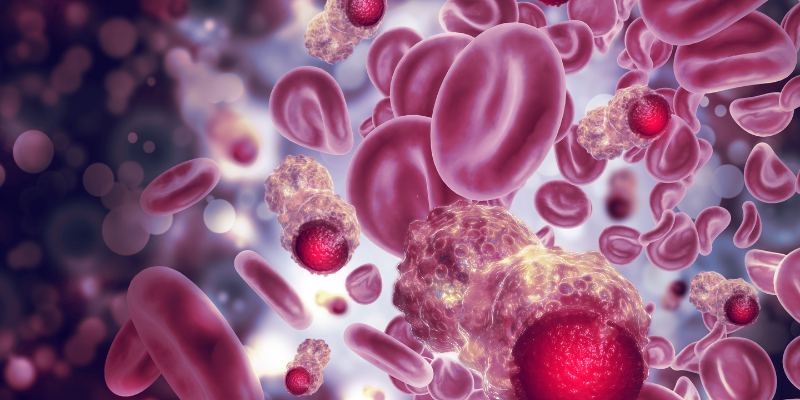- WhatsApp: +923249502250
- Email: info@pharmacologymadeeasy.com
Beacon of Hope: A Breakthrough in Pancreatic Cancer Treatment


Pancreatic cancer has historically had limited treatment options, but recent research from the University of California, San Francisco, might just change the game for a significant portion of patients. Keep reading on if you want to know more about this exciting discovery.
We'll explore how researchers are targeting a specific mutation to potentially shut down cancer cell growth and discuss the advantages of this highly selective approach. We'll also delve into the next steps, including clinical trials and the potential impact on the future of pancreatic cancer treatment.
So, buckle up and get ready for a deep dive into the science behind this groundbreaking research. Let's see why this could be a major turning point in the fight against pancreatic cancer.
The Challenge of Pancreatic Cancer
Pancreatic cancer has long been a formidable foe in the medical field. Often diagnosed at later stages and with limited treatment options, the prognosis for patients has remained guarded. However, a recent breakthrough by researchers at the University of California, San Francisco offers a beacon of hope for a significant portion of pancreatic cancer patients.
Targeting the KRAS G12D Mutation
The crux of this breakthrough lies in targeting a specific mutation known as KRAS G12D. This mutation is present in nearly half of all pancreatic cancer cases and acts as a persistent "on" switch for uncontrolled cancer cell growth. The UCSF team has developed a drug candidate that functions as a highly targeted molecular tool. This candidate precisely targets the KRAS G12D mutation and permanently flips the metaphorical switch to the "off" position. Consequently, the growth engine within the cancer cells is effectively shut down.
The Advantages of a Targeted Approach
A key advantage of this novel drug candidate lies in its selectivity. Unlike traditional therapies that can inflict damage on both healthy and cancerous cells, this candidate exhibits remarkable specificity. It selectively binds to the KRAS G12D mutation, leaving healthy cells unharmed. This targeted approach has the potential to significantly minimize the occurrence of side effects, a crucial factor in improving patient well-being during treatment.
While the development process continues, the researchers are currently optimizing the molecule to ensure its efficacy and longevity within the human body. If successful, this refined candidate could be ushered into clinical trials within the next 2 to 3 years. This represents a remarkably rapid advancement in the realm of medical research, potentially paving the way for a paradigm shift in pancreatic cancer treatment.
This discovery holds immense significance for the future of pancreatic cancer treatment. Traditionally, treatment options have yielded limited success. This novel approach, however, offers a targeted and potentially more effective strategy. By focusing on a specific vulnerability present in a large subset of pancreatic cancer cases, it presents a more precise and potentially gentler alternative to existing treatments.
Imagine a scenario where a garden is overrun with weeds. The traditional approach, which is painstakingly removing each weed by hand, is a laborious and potentially damaging process to the surrounding healthy plants. This novel drug candidate, however, functions like a highly selective weed whacker. It eliminates the targeted KRAS G12D mutation with precision, leaving healthy cells unscathed.
The Path to Clinical Trials
It is important to acknowledge that the path to widespread patient application requires further research. Clinical trials are a necessary step, and even then, there is no guarantee of absolute success. Nevertheless, this discovery represents a monumental leap forward in the fight against pancreatic cancer. It offers a new direction for researchers and a reason for optimism for patients battling this devastating disease.
Furthermore, the implications of this targeted approach might extend beyond pancreatic cancer. Continued research has the potential to adapt this strategy to other cancer-causing mutations, opening doors for even more groundbreaking advancements in the field of oncology. The KRAS G12D mutation is also found in some lung, breast, and colon cancers. While this research initially focused on pancreatic cancer, the success of this drug candidate could lead to adaptations for targeting these other cancers as well.
The Road Ahead
The next 2 to 3 years will be crucial. Researchers will be fine-tuning the dosage and delivery method of the drug candidate to ensure its safety and efficacy in human trials. These trials will involve testing the drug on a small group of patients to assess its effectiveness and potential side effects.
This discovery serves as a testament to the tireless dedication of researchers striving to make a profound impact on human health. All right, everyone, that brings us to the end of this exciting look at the potential game-changer in pancreatic cancer treatment. This research offers a glimmer of hope for many patients, and it's a testament to the incredible work being done in the field of oncology.
This video has been inspired by research done by https://www.youtube.com/@crimesciencestories

CUSTOMER SUPPORT DESK
Need help with something?
WhatsApp & Helpline:
+923249502250
info@pharmacologymadeeasy.com
support@pharmacologymadeeasy.com
FOLLOW ON SOCIAL MEDIA
About Me
I’m Prof. Dr. Abdul Qudoos. I provide online consultations for patients located worldwide, along with Pharmacology video lectures and notes for medical students across Pakistan. Whether you need medical guidance or academic support, I'm here to help!

Dr. Abdul Qudoos
MD, MPhil, CHPE, FCPS-II Trainee
Quick Links
Legal Policies
- © Pharmacology Made Easy. All rights reserved.
